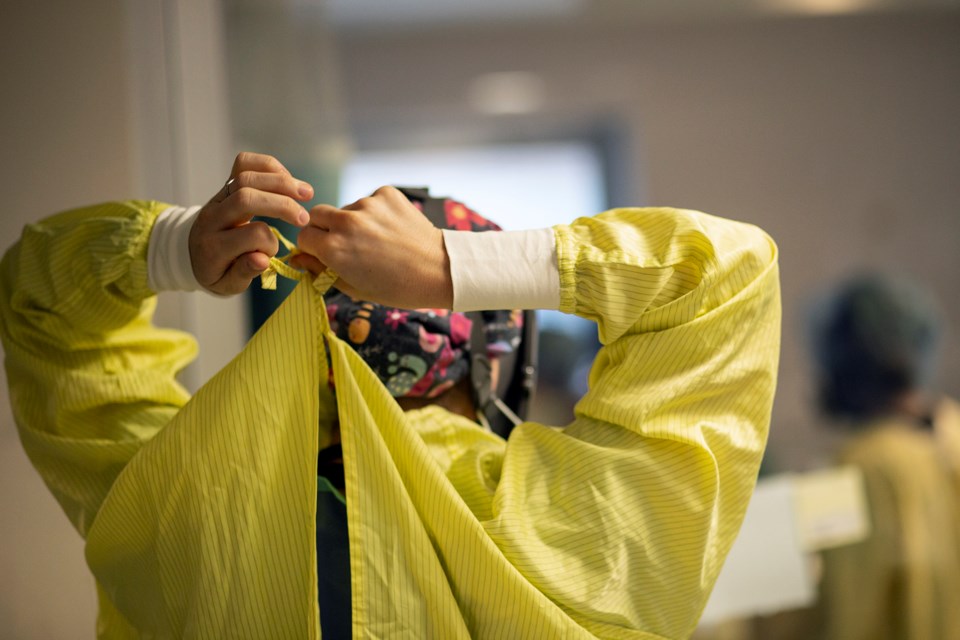Cataract treatments will likely be the first non-urgent surgeries to return to Guelph General Hospital now that the province has given permission to start the planning process.
“All of the nurses who usually work in the operating room are now working with the intensive care patients, so we have to start off with those procedures that don’t have as much resources for nursing attached to them,” said Melissa Skinner, vice-president of patient services, of why cataract surgeries are likely to be the first. “Plus we have a lot of people waiting for cataracts, so it will be nice to get at that wait list.”
The province ordered hospitals to start ramping down non-urgent surgeries in early April – a response to rising COVID cases and the resulting need for intensive care unit (ICU) beds.
On Wednesday, that order was revised to allow hospitals to begin planning and preparing to relaunch those services under certain conditions.
“That’s been all we’ve done all day today and all day yesterday,” Skinner said of reviewing the provincial order and deciding what steps to take next.
“We still have to make sure we have capacity to look after the critical care patients and Guelph General’s ICU is still full,” she said, noting 13 of the 16 beds were occupied as of late Thursday afternoon. “In fact, it’s not just our ICU, we’ve had to overflow ICU patients into our recovery area so until our ICU numbers come down to more manageable levels, we’re going to have to go very, very slow with introducing and non-urgent surgeries.”
Prior to the pandemic, the hospital had capacity for 10 ICU beds. That’s been increased to 16.
“We think the week of June 1st we might be able to start some day surgery procedures,” Skinner said. “That’s hoping that everything goes well in the province and the numbers continue to improve, but until we are under control in our critical care and until the province allows us to close some of those critical care beds, the extra ones we have opened, we’re going to be pretty limited.
“It’s going to be slow, but we’re happy just to get a few more cases going.”
Among the preparations being made, Skinner explained surgeons and their office staff have been asked to ensure wait lists are up-to-date and accurate so “as a region and as a province we can actually see what the impact of COVID has been and how many people are waiting and what they’re waiting for.”
Following cataract treatments, other non-urgent surgeries include endoscopies, tonsillectomy, potentially some gynecology procedures.
“We have to be very cautious,” she said, noting COVID cases have been decreasing for about a week. “We haven’t seen that real decrease that we were hoping to see. We’ve seen a bit of a levelling off of the cases in the ICU and a little bit of a decrease.”
“We’re planning a little bit early. There’s still a risk that … this might spike up – we hope not.”
All high-priority surgeries such as cancer treatments, urgent fractures and vascular procedures have continued during the ramp-down, Skinner added.
“We know people are waiting, but the ones who are the most critical have been completed.”
